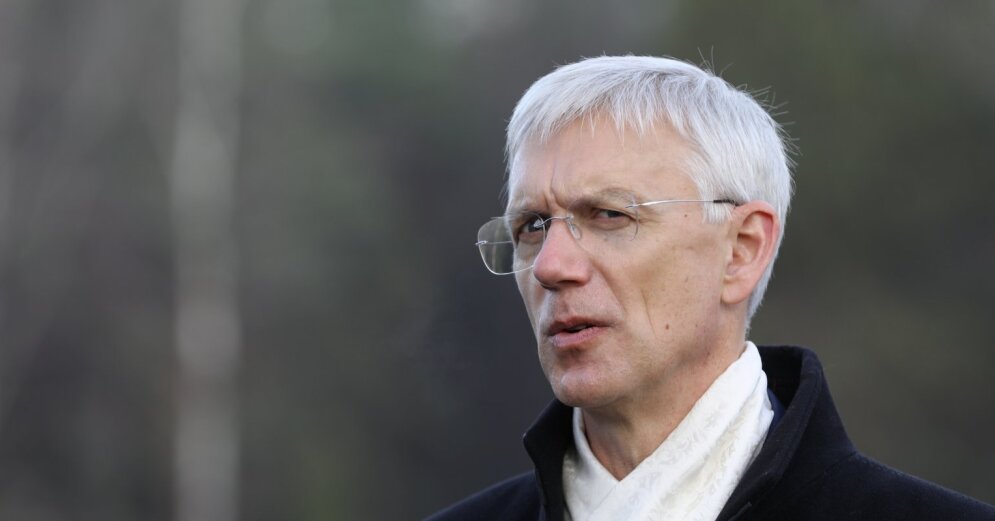While the French justice has twice refused the surrender of the former activist to Italy, the prosecution seizes the Court of Cassation which will therefore either have to validate the judgment of the Angers Court of Appeal, or return this case before a court of appeal, for the third time, indicates Monday Matin n ° 262 of November 9, 2020.
–
On November 4, the Angers Court of Appeal rendered its verdict on the European arrest warrant targeting Vincenzo Vecchi, an Italian activist who has lived for nine years in Rochefort-en-Terre, in Brittany, where he is invested in several associations. Two years before finding refuge in Brittany, in 2009, Vincenzo Vecchi was sentenced in Italy to twelve years and six months in prison, under a law dating from the fascist period, for his participation in two demonstrations.
The first of these took place in Genoa in 2001 and intended to protest against the G8. Italian police killed one there, and was convicted by the European Court of Human Rights (ECHR) for acts of torture committed against demonstrators. The second demonstration for which Vincenzo Vecchi was condemned was held in 2006 in Milan in order to protest against the gathering of a fascist organization. The openly fascist demonstration had been authorized, and the anti-fascist counter-rally prohibited. Clashes with the police followed.
A year ago, the Rennes Court of Appeal released Vincenzo Vecchi and invalidated the proceedings against him, his right to a double defense, namely the possibility of being represented by lawyers in France and Italy. , not having been respected. This decision was however overturned a few weeks later by the Court of Cassation. The case had thus been referred to the Angers Court of Appeal, before which Vincenzo Vecchi appeared on October 2.
To decide whether or not Vincenzo Vecchi should be handed over to Italy, the Angers Court of Appeal therefore had to rule on the merits, namely the existence of “double criminality”, in other words the presence in the French law of an offense equivalent to that which justified the conviction in Italy. However, the crime of “sacking and devastation” which served to convict Vincenzo Vecchi for his presence in demonstrations which turned into confrontation, was drawn up in 1930 to punish anti-fascist demonstrators, and punishes sentences ranging from eight to fifteen years in prison for acts which in France would be considered as simple offenses and not crimes. Moreover, according to this law, the guilt of an individual can be established by a simple “moral contest”, namely his presence near clashes or acts of looting or destruction, without necessarily that there is himself participated.
Thus, in the photographs used to convict Vincenzo Vecchi and appearing in the file to prove his guilt, he is present near the clashes or destruction, without it being possible to know whether he personally participated in them. For this reason, the Angers Court of Appeal considered that “the absence of double criminality for the facts retained under the qualification of devastation and looting requires refusing the execution of the European arrest warrant up to ten years of imprisonment pronounced as such ”.
On the other hand, the judgment of the Angers Court of Appeal recalls that out of the twelve and a half years of detention to which Vincenzo Vecchi had been sentenced, two and a half years concerned a theft with violence, as well as the transport and use of molotov cocktails. Facts that Vincenzo Vecchi refutes. In its judgment, the Angers Court of Appeal ordered further information about this sentence, and invited the Advocate General to ask Italy if it wanted this remainder of the sentence to be executed in France, after subtraction of the year of pre-trial detention carried out in Italy and the three months and seven days carried out in France. If this sentence was confirmed, it would therefore remain to serve a flexible sentence of one year, two months and twenty-three days of detention.
After the communication of this decision, Médiapart considered that it was unlikely that the Advocate General would appeal on points of law, as the judgment delivered by the Angers Court of Appeal establishing the absence in French law of a equivalent of the Italian law repressing “looting and devastation” was precise and well-argued. In addition, the possible execution of a remainder of the sentence in France seemed to aim not to humiliate Italian justice.
On November 5, in a column published in Le Monde, many personalities, as diverse as writers Eric Vuillard, Alexis Jenni, Pierre Lemaitre, Jérôme Ferrari, Hélène Cixous, Nathalie Quintane, Annie Ernaux, Geoffroy de Lagasnerie, Didier Eribon and Edouard Louis, the magistrate and former candidate for the presidential election Eva Joly, the director Robert Guédiguian, the historians Ludivine Bantigny and Mathilde Larrère, the editor and former Minister of Culture Françoise Nyssen, the publisher Eric Hazan, the former ministers of Justice Christiane Taubira and Marylise Lebranchu, or even Thierry Limon-Duparcmeur, bookseller in Rochefort-en-Terre, affirmed that “the honor of French justice would be to know how to stop there”.
However, shortly after, we learned that the Advocate General had decided to appeal in cassation. The Court of Cassation will therefore either have to validate the judgment of the Angers Court of Appeal, or refer this case to a court of appeal, for the third time. In a press release, the members of the support committee for Vincenzo Vecchi, formed in Rochefort-en-Terre in the summer of 2019 shortly after his arrest, say they are “appalled, dismayed, revolted, by this incomprehensible and delusional judicial relentlessness that seems to us raise more political choices than legal coherence. “They also note” the concomitance of this appeal with the fact that the Italian Minister of the Interior has just promoted two police officers convicted of falsifying evidence, which triggered the savage repression of 2001 at the Genoa summit. “
While waiting for the epilogue, the mobilization in support of Vincenzo Vecchi obviously continues, with more than ever the slogan “Neither prison nor extradition”.
–

